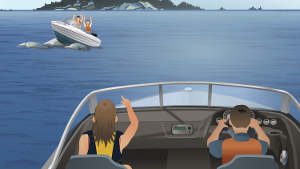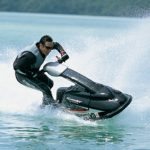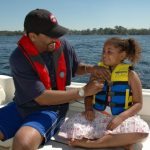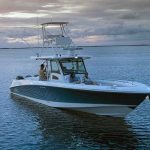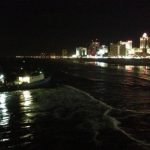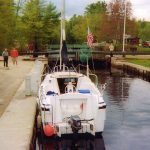Just as sure as the sun rises in the east, there will come a time in the life of a skipper when it becomes necessary or prudent to render assistance to another boater. Rarely will the occasion be a life-or-death situation, or of such serious nature as to require knowledge of lifesaving skills or rescue techniques. But to the boaters needing your assistance, you may look as good steaming in their direction as the cavalry looked to the settlers, riding in to save the fort.
The majority of boaters in trouble are having engine difficulties. Marine engines, like their owners, get varying degrees of love and attention. Marine engines used recreationally probably get relatively little owner respect, and therefore are more likely to fail sometime during some boating season. I’m guessing that most boat owners spend much more time in the company of their boats with a can of fiberglass polish and a buffing pad than with the engine owner’s manual.
Sooner or later, you’re going to chance upon a boat with an overheated engine, out of fuel, or some other disabling condition. If it’s a typical boating day, it may be hot, and the skipper and passengers of the distressed vessel (Grandma, the wife and kids, and dog) will be anxious for a tow. You can and should assist them, of course, but first you have to make sure you can do so safely.
- If the vessel in distress is taking on water, request that the passengers don PFD’s, and then transfer them to your boat. See if there’s something you can do to keep the vessel afloat. If you can, radio the Coast Guard or local marine patrol and tell them what you’re up to. Assess the situation, and take further action appropriate to the conditions. Elections could include marking the location and taking the passengers to shore, or taking the vessel in tow.
- Before you commit to towing any boat, make certain that the hardware you use for the towlines on your boat and on the distressed vessel are of adequate strength, through-bolted, and have a substantial backing plate. Use towlines that are free of splices, knots and frays, and appropriate length and size for the boat size and sea conditions. Require that all passengers on both boats wear PFD’s. You may want to transfer passengers to your boat, or re-arrange passengers for better trim in the towed boat, depending upon conditions you assess.
- During the tow, use a relatively low boat speed, and if towing a sailboat, keep in mind that the displacement hull has speed limitations beyond that of most planing hulls. Use a towing “bridle” when possible to distribute the stress on the lines and boat hardware. Adjust the tow line to put the towed boat “in step,” so that your boat and the towed boat are taking their respective waves in concert — when you are in the trough, so is the towed vessel, and when you are on the crest, so is the towed vessel.
- If you come across a capsized sailboat, don’t be too eager with your “righting” or rescue assistance unless it is apparent that someone in the water is in serious trouble. For one thing, the sailboat may be part of an organized race event, and by touching the crew or boat you could disqualify them. Also, sailors are usually very proficient in righting their vessels, and unless the vessel has “turtled” with the mast stuck in the mud, it is best to just stand by and let the sailors call the shots. If you are asked to assist, or if you make an assessment that your intervention is necessary, approach the capsized vessel from downwind, being careful not to get your boat or propeller involved in the sailboat’s rigging, some of which may be partially submerged. Have someone attach a line to the mast, as high up as possible, and with the sailors standing on the keel or daggerboard and simultaneously pulling on the up gunwale, try to slowly right the boat.
There are some things you can carry on your boat that can be very important should you come across a distressed boater situation. A first-aid kit and a blanket, a heaving line, lines heavy enough to double as a towline, and extra life jackets can help you help them. Communications devices also can make the difference in more serious incidents, so a cell phone and/orVHF Marine radio is important not only for your own safety, but also when dealing with another vessel in distress.
So if you’re out on the water, and are called to a distressed boater or just happen to run across someone having problems, by all means render assistance, just as you would want someone to help you. But don’t turn a bad situation into a worse situation. Help, but help safely!

